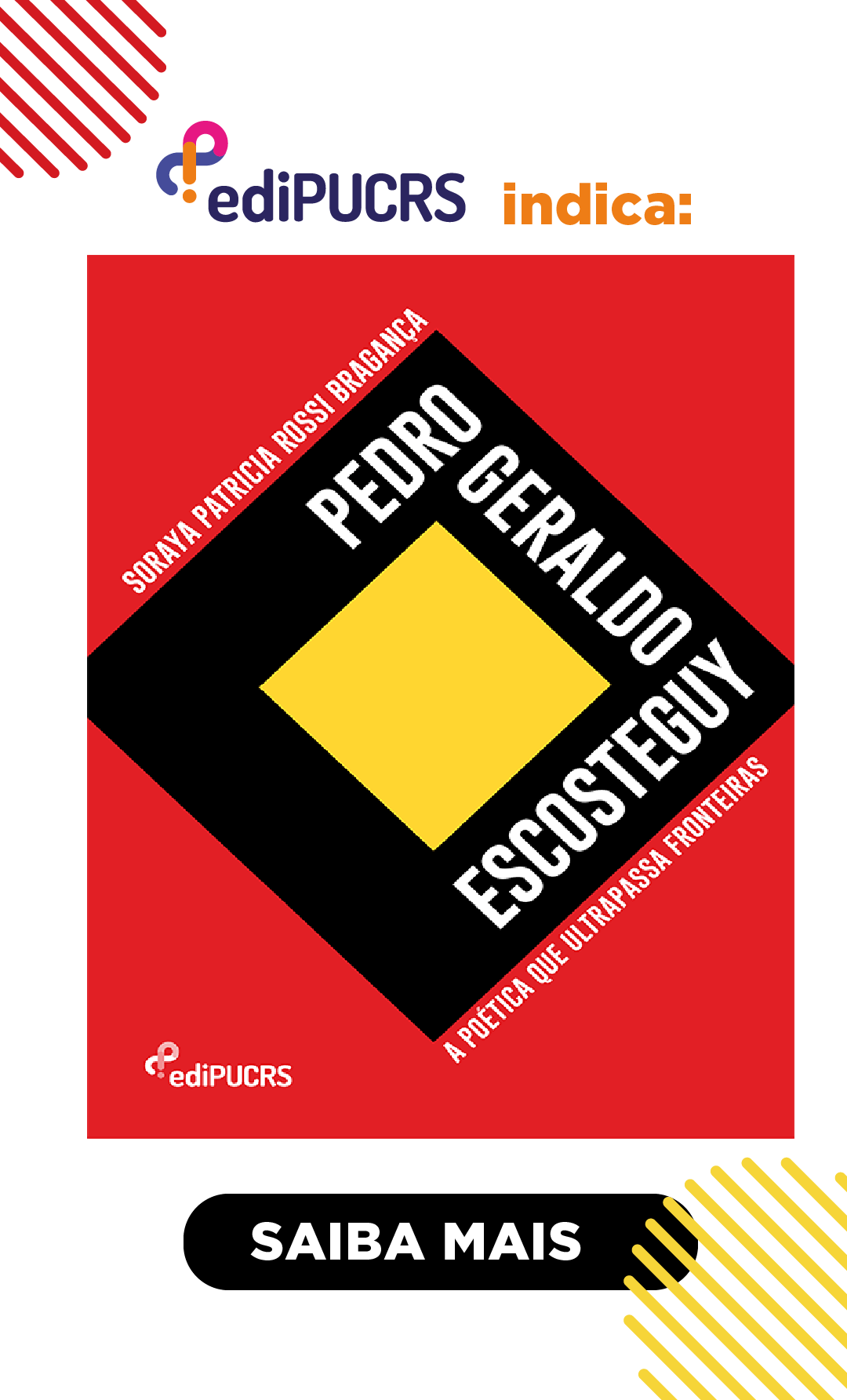Poems “invented by a program that never existed”
DOI:
https://doi.org/10.15448/1983-4276.2021.1.36708Keywords:
Cancioneiro Infanto-Juvenil para a Língua Portuguesa, Children’s writing, PoetryAbstract
The seventeen volumes of Cancioneiro Infanto-Juvenil para a Língua Portuguesa, from the Instituto Piaget, published from 1990 to 2014, include a thousand texts written by children aged between 2 and 6 years. In this article, I will note my reading of this poetic production, illustrating it with half a hundred of those texts. I aim to understand the poetic expression of childhood, taking as a reference the main themes exposed (which include experiences, sensorialities, feelings, ideations), as well as the literary topics to which the texts point. I will also look at the way in which the poetic self is revealed. In the course of my analysis, I highlight elements of an aesthetic nature and the inventiveness that characterizes children’s poetry.
Downloads
References
ANDRADE, Eugénio de. Poética. In: Poemas de Eugénio de Andrade. O homem, a terra, a palavra. Apres. crítica, sel. notas e sugestões para análise literária de Paula Morão). Lisboa: Seara Nova; Editorial Comunicação, 1981.
CANCIONEIRO INFANTO-JUVENIL PARA A LÍNGUA PORTUGUESA. Eu moro na minha mãe. Lisboa: Instituto Piaget, 1990. v. I.
CANCIONEIRO INFANTO-JUVENIL PARA A LÍNGUA PORTUGUESA. Trouxe-te um beijo no bolso. Lisboa: Instituto Piaget, 1990. v. II.
CANCIONEIRO INFANTO-JUVENIL PARA A LÍNGUA PORTUGUESA. Se eu fosse lua fazia uma noite. Lisboa: Instituto Piaget, 1990. v. III.
CANCIONEIRO INFANTO-JUVENIL PARA A LÍNGUA PORTUGUESA. O sonho vem pela cabeça. Lisboa: Instituto Piaget, 1992. v. IV, V.
CANCIONEIRO INFANTO-JUVENIL PARA A LÍNGUA PORTUGUESA. Sou um corpo para dois de mim. Lisboa: Instituto Piaget, 1993. v. VI
CANCIONEIRO INFANTO-JUVENIL PARA A LÍNGUA PORTUGUESA. O livro é uma história com boca. Lisboa: Instituto Piaget, 1996. v. VII, VIII.
CANCIONEIRO INFANTO-JUVENIL PARA A LÍNGUA PORTUGUESA. A poesia é feita aos molhinhos ou em verso. Lisboa: Instituto Piaget, 2000. v. IX.
CANCIONEIRO INFANTO-JUVENIL PARA A LÍNGUA PORTUGUESA. Silêncio é o barulho baixinho. Lisboa: Instituto Piaget, 2000. v. X, XI.
CANCIONEIRO INFANTO-JUVENIL PARA A LÍNGUA PORTUGUESA. Um livro é… uma árvore de histórias. Lisboa: Instituto Piaget, 2003. v. XII.
CANCIONEIRO INFANTO-JUVENIL PARA A LÍNGUA PORTUGUESA. A minha vida é uma memória. Lisboa: Instituto Piaget, 2008. v. XIII.
CANCIONEIRO INFANTO-JUVENIL PARA A LÍNGUA PORTUGUESA. A casa do sol é a cor azul. Lisboa: Instituto Piaget, 2008. v. XIV.
CANCIONEIRO INFANTO-JUVENIL PARA A LÍNGUA PORTUGUESA. Amo de ti. Lisboa: Instituto Piaget, 2010. v. XV.
CANCIONEIRO INFANTO-JUVENIL PARA A LÍNGUA PORTUGUESA. Rimar é remar. Lisboa: Instituto Piaget, 2010. v. XVI.
CANCIONEIRO INFANTO-JUVENIL PARA A LÍNGUA PORTUGUESA. As pessoas são sementes que crescem e não precisam de vento para mexerem. Lisboa: Instituto Piaget, 2014. v. XVII.
CEIA, Carlos. s.v. Figuras de estilo. E-dicionário de termos literários (EDTL), coord. de Carlos Ceia, 2009. Disponível em: https://edtl.fcsh.unl.pt/encyclopedia/figura-de-estilo/. Acesso em: 19 dez. 2019.
DUFRENE, Mikel. Le poétique. 2. ed. Paris: PUF, 1973.
MAGALHÃES, Violante F. Do fazer poético da infância: ‘uma coisa que não é a mesma coisa mas é igual’. Navegações, Porto Alegre, v. 10, n. 2, p. 211-217, 2018. https://doi.org/10.15448/1983-4276.2017.2.29794
MENÉRES, Maria Alberta. O poeta faz-se aos 10 anos. Porto: Porto Editora, 1984.
SILVA, Vítor Manuel Aguiar e. Teoria e metodologia literárias. Lisboa: Universidade Aberta, 1990.
Downloads
Published
How to Cite
Issue
Section
License
Copyright (c) 2021 Navegações

This work is licensed under a Creative Commons Attribution 4.0 International License.
Copyright
The submission of originals to Navegações implies the transfer by the authors of the right for publication. Authors retain copyright and grant the journal right of first publication. If the authors wish to include the same data into another publication, they must cite Navegações as the site of original publication.
Creative Commons License
Except where otherwise specified, material published in this journal is licensed under a Creative Commons Attribution 4.0 International license, which allows unrestricted use, distribution and reproduction in any medium, provided the original publication is correctly cited.





